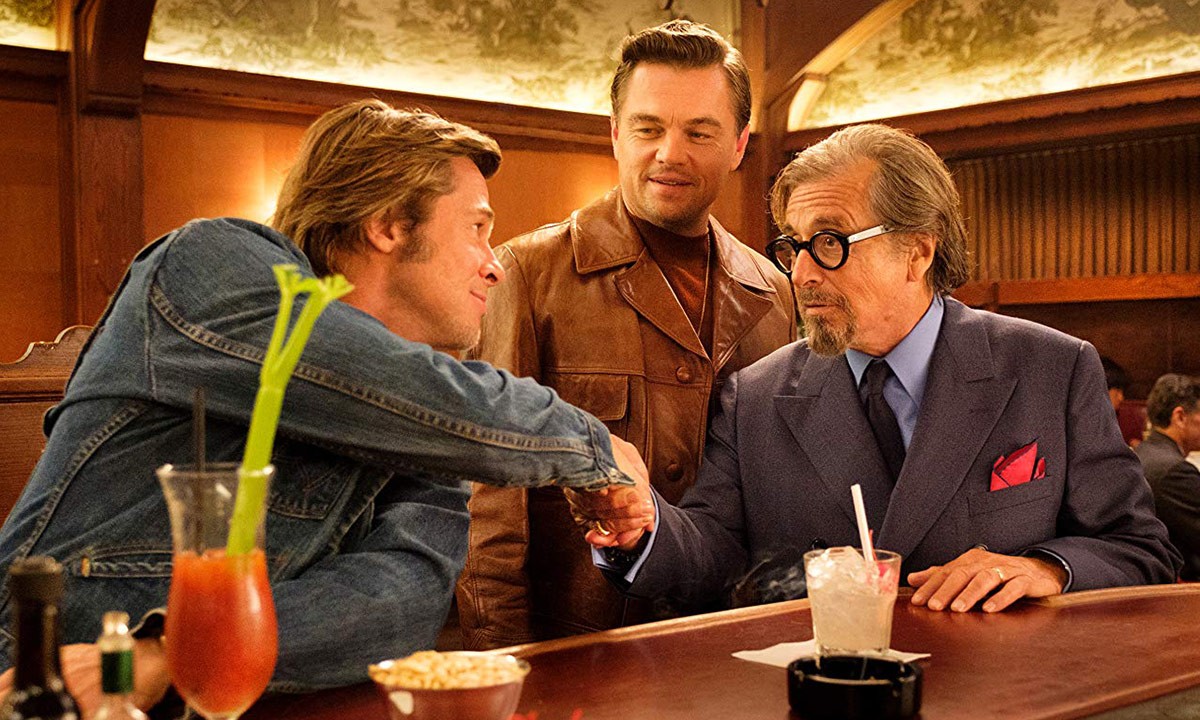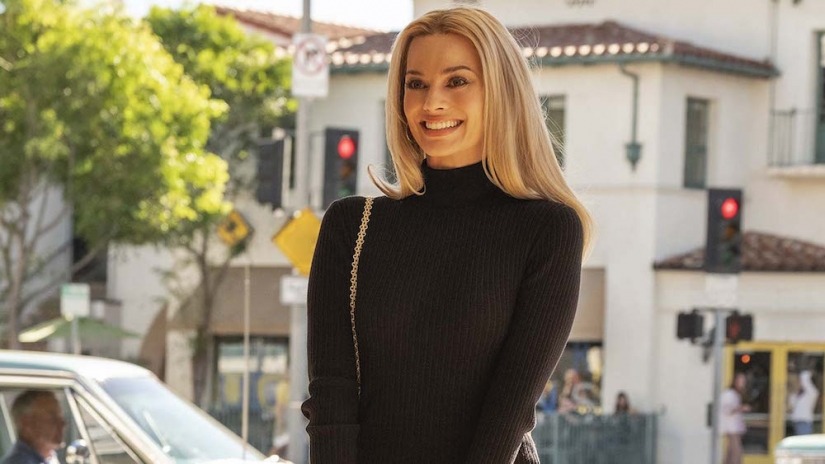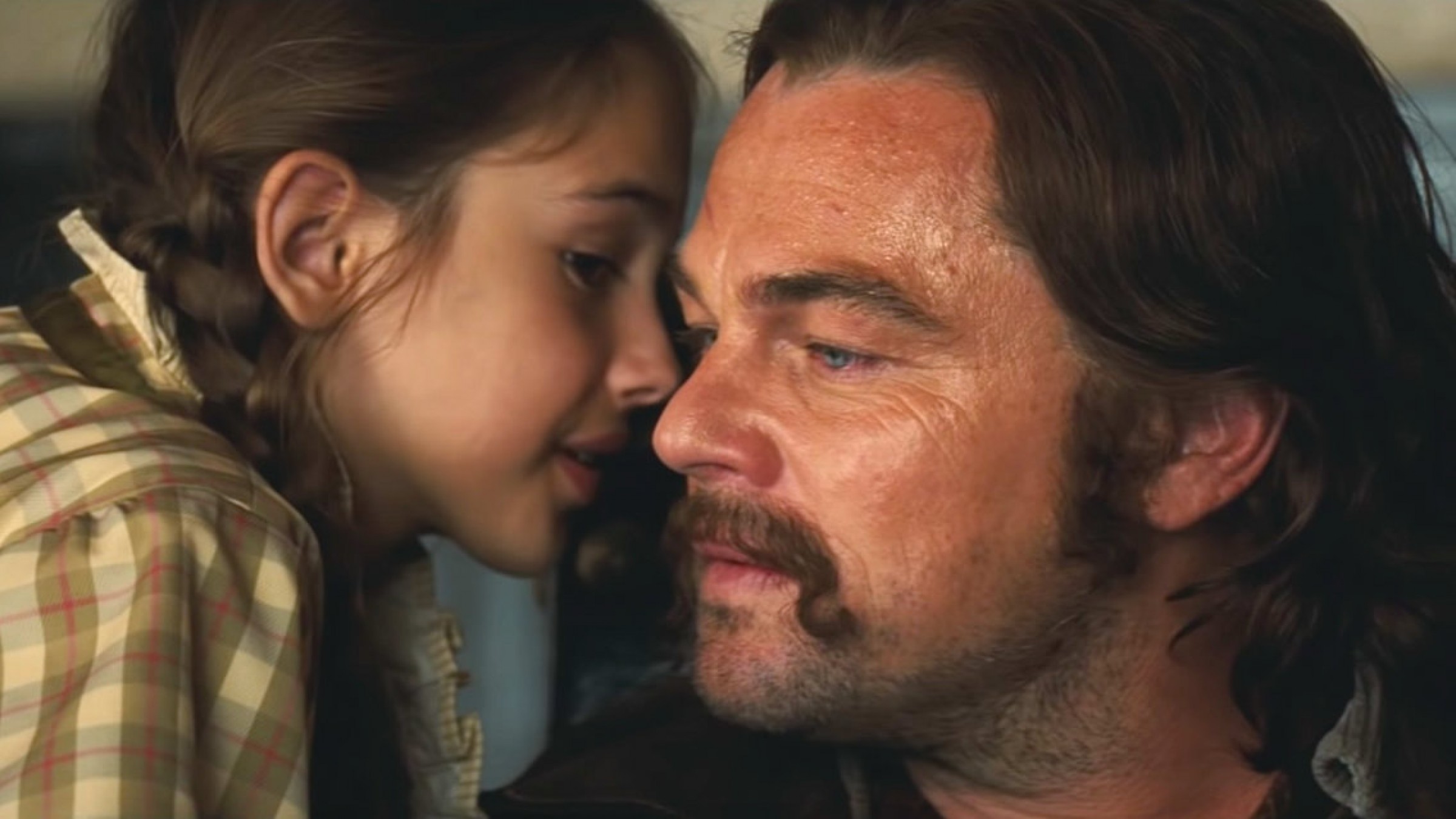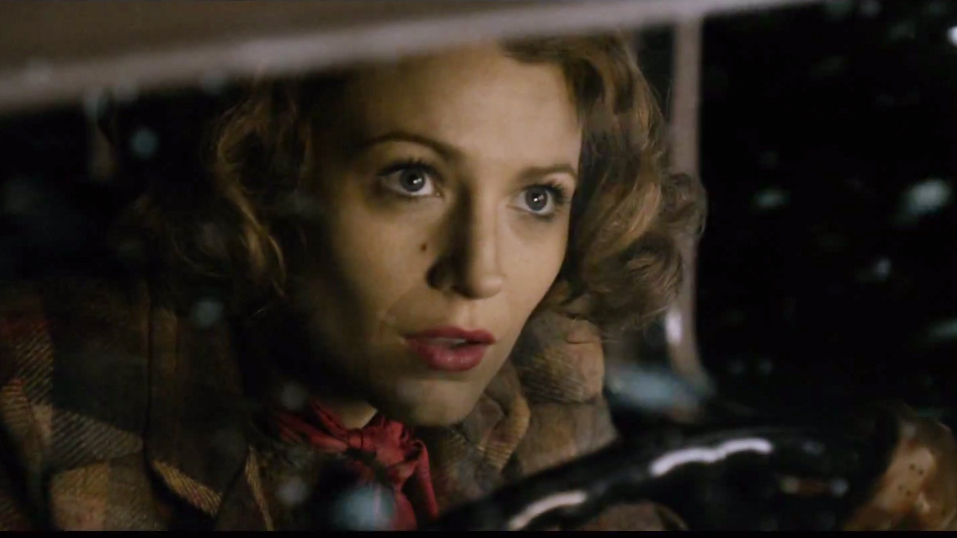ONCE UPON A TIME IN HOLLYWOOD
 Tuesday, August 20, 2019 at 3:27PM
Tuesday, August 20, 2019 at 3:27PM Stars: Brad Pitt, Leonardo DiCaprio, Margot Robbie, Margaret Qualley, Dakota Fanning, Julia Butters, Damon Herriman, Austin Butler, Emile Hirsch, Scoot McNairy, Luke Perry, Al Pacino, Nicholas Hammond, Spencer Garrett, Mike Moh, Lena Dunham, Damian Lewis, Bruce Dern, Kurt Russell, Timothy Olyphant, Zoë Bell and Michael Madsen.
Writer/Director: Quentin Tarantino
(THIS REVIEW CONTAINS MINOR SPOILERS)
Rating: ★ ★ ★ ★ ★

When you are a director eight films into a career streak marked by eight cinematic events, your ninth film can be about whatever your heart desires. And Los Angeles in the summer of 1969 - a cool hotbed of hippy counter-culture, groovy tunes, barefooted women, the paradigm-shifting emergence of New Hollywood and a scruffy, psychotic, ticking time bomb of violence called Charles Manson - beats to the obsessive pop-culture pulse of Quentin Tarantino like no film of his ever has.
Once Upon a Time in Hollywood hitches a ride through the period with three distinctive characters, each of which speak to key strengths in Tarantino’s writing arsenal. Leonardo DiCaprio plays ageing action tough-guy Rick Dalton, once the heroic lead in a hit NBC series, but whose career has reverted to small-screen baddie bit parts; Dalton’s stunt-double and gofer Cliff Booth (Brad Pitt, at his most charmingly laconic), whose industry standing is also sliding but who takes the downturn in his manly stride; and, a starlet on the rise named Sharon Tate (a luminous Margot Robbie), who has settled into life as Rick’s neighbour in a home on Cielo Drive with hairdresser Jay Sebrig (Emile Hirsch) and her largely-absent boyfriend, Roman Polanski.
Plotting is sparse in Tarantino’s ninth. Rick gets a gig as a moustache-twirling villain in a TV western pilot, and feels the pressure to deliver the performance of his newly-defined career; Tate wanders the backlot before settling into a session of her big-break movie, The Wrecking Crew with Dean Martin, giddy with delight when the audience laughs at her pratfalls; and, Cliff, between running errands for Rick and hanging with his lovable pitbull Brandy, chance encounters a free-spirited teen named Pussycat (Margaret Qualley) who takes him to ‘Charlie’s’ creepy commune compound on an old movie lot called Spahn Ranch.

A fair portion of the movie magic that the auteur brings, and he brings a lot, is in the interaction of his characters and the meaningfulness he imbues in each of them. Not since Jules and Vincent bantered between hits in 1994’s Pulp Fiction has Tarantino so perfectly nailed the fragile ‘macho buddy’ friendship dynamic that he captures in Rick and Cliff. Men like these are the heroes of the director’s formative years (speculation suggests they are based in part upon Burt Reynolds and Hal Needham); actors who have experienced the ebb-and-flow of stardom have often found favour with the director (Travolta, of course, but also Robert Forster, David Carradine and Michael Parks, amongst many).
DiCaprio and Pitt (who deserves Oscar attention for his work here) are like a booze-sodden Butch and Sundance; one, tearing himself apart over his waning influence, the other so inured to pain and suffering (Pitt’s strapping torso a diary of past wounds) he’s numbed to what the future holds for his type of Hollywood hanger-on. In one of Tarantino’s great dialogue scenes, a desperate DiCaprio, in full villainous garb awaiting his first scene, shares a heartbreaking meet-cute with seasoned Tinseltown 8 year-old, Trudi (a perfect Julia Butters); it is one of many great bit parts from actors such as Damian Lewis (a spot-on Steve McQueen), Bruce Dern, Luke Perry, Dakota Fanning and Damon Herriman.
The inspired casting of Margot Robbie as Sharon Tate represents, above any other character from Tarantino’s oeuvre, the kind of warm, genuine human presence that defines his growth and maturity as a storyteller. He understands that her horrific demise, in confluence with the Viet Nam War and the Watergate revelations, sounded the death knell for America as a nation driven by optimism and hope. Robbie is an extraordinary presence as the ill-fated starlet; Pitt and DiCaprio carry the load, but the film soars on the Australian actress’ impact in only a handful of scenes.

America is not denied its destiny-altering moment of late ‘60s ultra-violence; this is a Tarantino movie, after all, and few filmmakers revel in the visceral power of cinematic bloodshed like QT. But the destiny he envisions is different; more importantly, it’s better. Tarantino’s tendency towards historical revisionism (see, 2009’s Inglorious Basterds) and the hint of a fairy tale outcome right there in the title allows for what is the most emotionally resonant third act in all of his films.
Once Upon a Time in Hollywood is an experiential odyssey, more interested in the mood and vibe of the summer of love and the characters that populate it than any heavy bummer of a narrative. This is where Tarantino likes to live, clearly as a filmmaker, but also one suspects, within himself – the LA of Matt Helm movies, Playboy Mansion pool parties, the Van Nuys Drive-In, neon-lit fast-food hangouts and whiskey sours before noon. His Hollywood is filled with flawed but real heroes, friendships bonded by hardship, and an innocence that is cherished, not lost. His heart is in this film, for the first time afforded as much input as his fan-boy passion and film culture knowledge.
The result is the year’s best American film.
 1960s,
1960s,  Hollywood,
Hollywood,  Retro Fashion,
Retro Fashion,  Tarantino
Tarantino 


